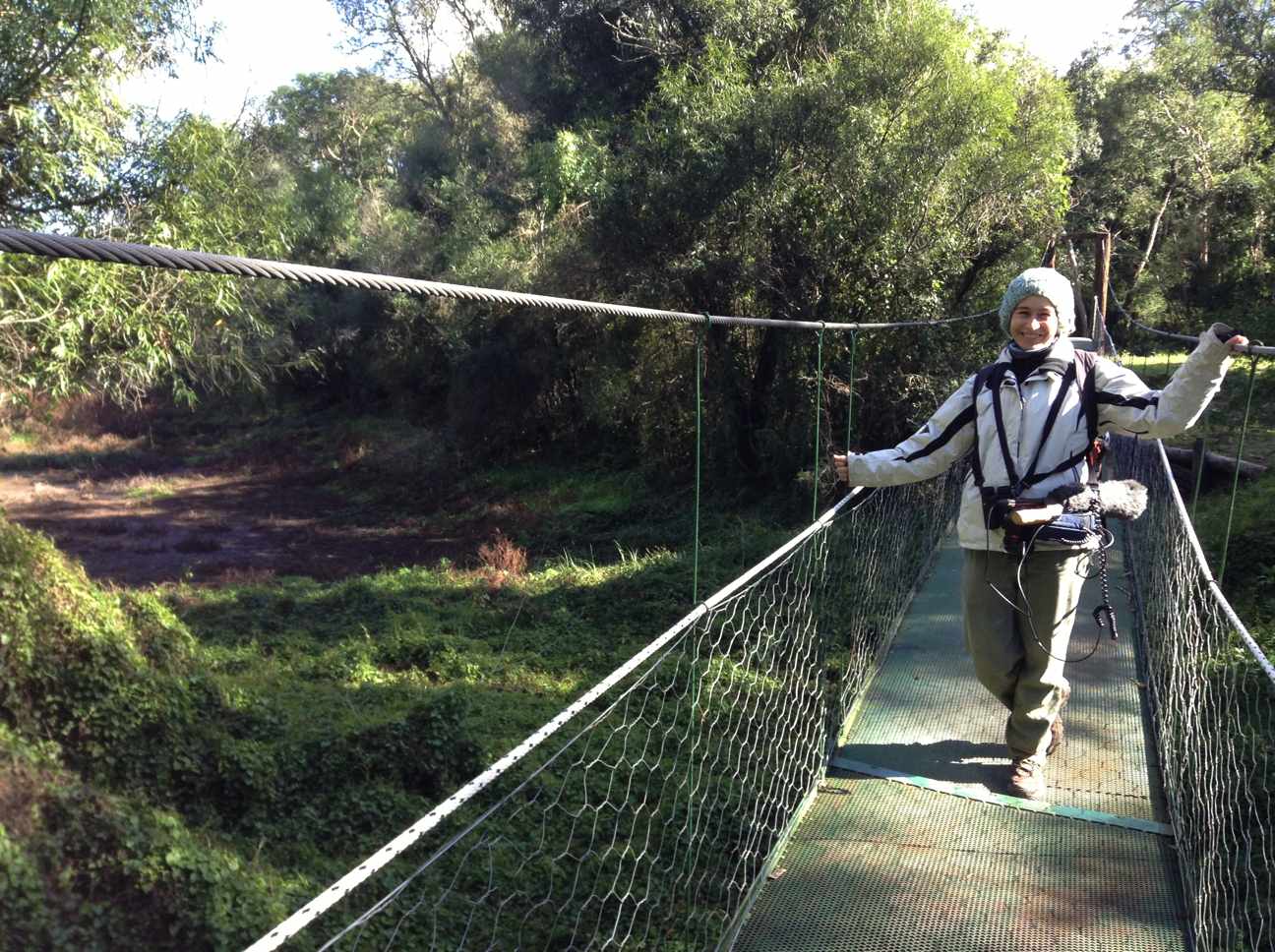
Ingrid Holzmann is a researcher at Consejo Nacional de Investigaciones Científicas y Técnicas (CONICET) in Argentina. She received a Leakey Foundation research grant in 2020 for her project entitled “Are black-and-gold howler monkeys dear enemies?”
When did you realize you were interested in science? Did you like science as a child, or did you come to it later?
I always liked animals, especially primates. After finishing my degree in biology, I decided to dedicate my life to the study of primate behavior, so science was the perfect vehicle to lead me to the adventure of answering all the questions in my head. It’s also a beautiful excuse to spend time in the field gathering the data, together with wild howler monkeys!
How did you become interested in your current field?
When I met my husband, Nacho Areta, a biologist interested in bird vocalizations and bioacoustics, I started to love sounds more and more. The sounds of nature are amazing, not only those produced by living creatures but also the sound of rain, wind, running water, etc. Later, I discovered howler monkeys were perfect for vocalization studies since they broadcast powerful roars that can be heard at least one kilometer away. Although I’m engaged in the study of howler monkey vocalizations now, I hope to expand my studies to other species in the future, including humans!
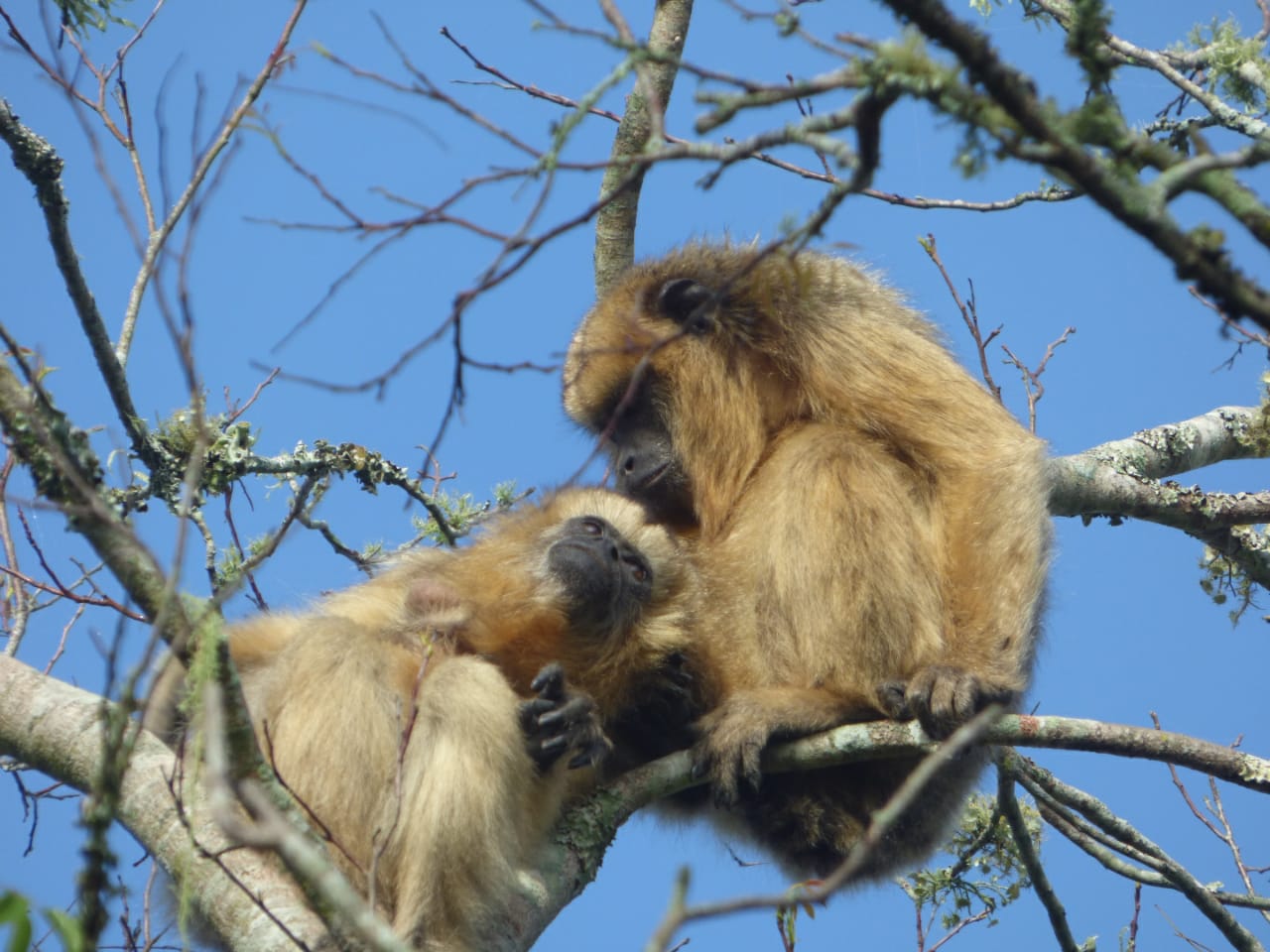
Tell us about your Leakey Foundation project. What questions are you trying to answer?
My project “Are howler monkeys dear enemies” explores vocal recognition in the black-and-gold-howler monkey (A. caraya) and the nature of long-term relationships between residents, neighbors, and strange males. In species that occupy a stable home range throughout the year, relationships with neighbors are extremely important. Studies have shown that resident individuals respond less aggressively to calls emitted by familiar individuals (neighbors) than to the signals emitted by strangers. This asymmetry in response is known as the “dear enemy” phenomenon. Residents respond less aggressively to neighbors due to different factors such as familiarity or because neighbors present less of a threat than strangers. However, there is also evidence showing the opposite scenario, where some species display more aggressively towards neighbors than strangers. This situation is known as “The nasty neighbor effect”. The recognition of neighbors individually, through their vocalizations, becomes an essential tool in group-living animals, allowing a dominant male to constantly monitor their neighbors, evaluate the degree of coalition between neighboring males, and to identify other males’ willingness to engage in a conflict. To a better understanding of these long-term relationships between males of different statuses, I performed play-back experiments using roars of neighbors and strangers, gathering information about the degree of aggressiveness in central males.
How did you feel when you learned you were awarded a Leakey Foundation grant?
Im super excited about this grant! It will help me to finish my play-back experiments as well as establish a permanent study site in northeastern Argentina. With this grant, I will be able to travel to the study site regularly, bringing students who are also interested in howler monkeys.
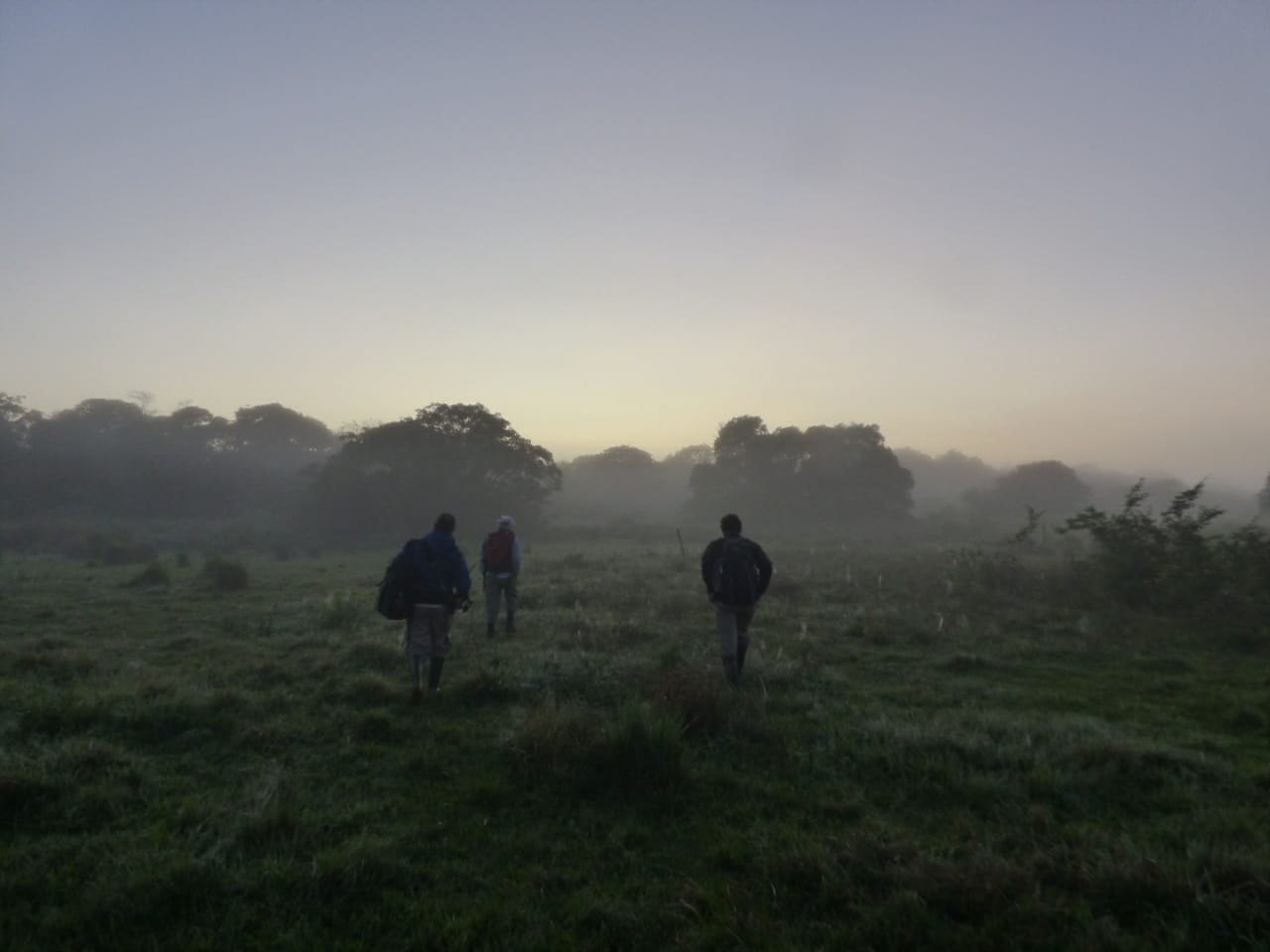
What do you enjoy most about your work, and what do you find most challenging?
What makes me very happy (and makes me feel lucky) about my work is spending time in nature, together with the monkeys and with people who share the same passion.
What challenges me is combining the peaceful and romantic task of following wild-living animals while trying to answer questions that require a rigorous and stressful methodology–stressful methodology for me, not for the monkeys. For example, play-back experiments must be well done in order to conclude something useful, but sometimes monkeys do not “cooperate” with play-back protocols and procedures, so we must wait many hours until experiments can be performed. Sometimes, when everything is set up and ready, monkeys do something against the protocol just before the experiment, like sometimes they start to howl, canceling the possibility of an experiment that day! So it is a happy challenge to stay cool, calm, and happy at the end of a long and tiring day when there are no experiment results!


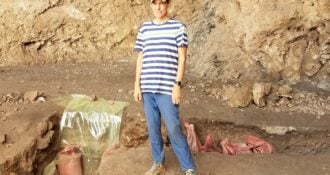
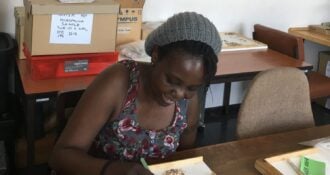

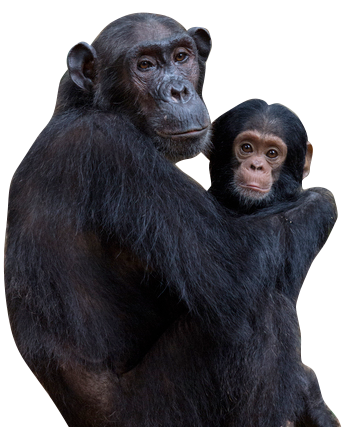
Comments 0